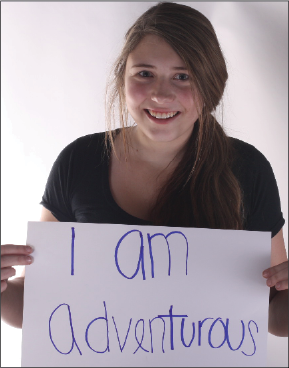Maddy McMullin* had always been a happy, outgoing kid, but in second grade, things changed.
During her second semester of second grade, other students at Robinson Elementary began to bully her. She would come home in tears at the end of every school day, and she dreaded going back each morning.
“It was just so different from the person my parents were used to seeing in me,” Maddy, sophomore, said.
Maddy’s pediatrician told her parents she might have depression, but her parents chose not to medicate her, thinking she was too young. She transferred to the College School during second grade and ended up staying there. She became happier, and for the next couple years, her parents did not worry. But in fifth grade, her parents took her to a psychologist, who diagnosed her with depression. She went on medication and noticed a drastic change in her mood for the better.
But at the end of fifth grade, Maddy’s mother suffered a heart attack and brain injury that left her unable to eat, speak or walk, and Maddy’s depression grew more difficult to handle. When her mother died just before Maddy’s seventh grade year, life became harder. She went to school less and less, sometimes missing more than two weeks’ worth of school days in a single month. She quit asking her dad to refill the prescriptions of her antidepressants.
“It’s a 24/7 thing. I didn’t have motivation to do things, I couldn’t find anything to make me happy, I didn’t really have a love for life. I didn’t really want to go out and enjoy simple things. I didn’t enjoy seeing my friends,” Maddy said. “I didn’t get enjoyment out of anything.”
John McMullin, Maddy’s dad, remembered that time of their lives as extremely difficult.
“It was just horrible. But she’s a strong kid, she made it through. Sometimes we’d just hold each other all night long,” John said. “Thank God she’s a strong person.”
When she was 13 years old, Maddy decided she was done being miserable. She asked her dad to refill the prescriptions, and he agreed. Once she began taking the medicine again, she noticed a change.
“I let a lot more things go. I was just happy all the time. Every day was great. I had my lust for life back,” Maddy said. “That would be awesome if I could be happy just in life, but I can’t, and I need medicine to do that, and I think that’s fine. If I can’t be happy on my own, I don’t want to spend my life miserable.”
Maddy believes her depression is not anything to be ashamed of. It has made her more mature, more open and a better friend. If someone asks her about it, she does not avoid the conversation.
“Some people want to seem strong and that they don’t have any problems, and that everything is going great in their life, even though the depression they’re dealing with isn’t something they can control with their life,” Maddy said. “I’m not secretive about it, because it’s part of me. It’s not something I have control over, so it’s not something I’m embarrassed about.”
*The Call asked Maddy to describe herself in one word. The characteristic she wrote down has not been affected by her depression, demonstrating it does not define her.
For more information about depression:
http://health.nytimes.com/health/guides/symptoms/depression/overview.html











